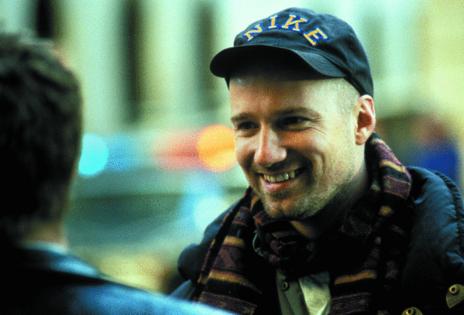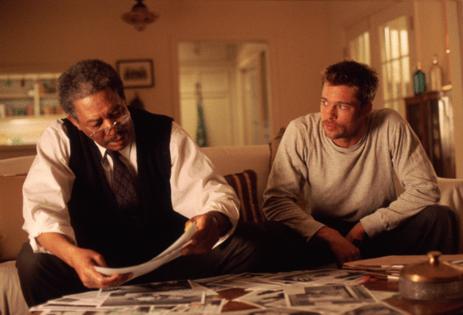Q&A: David Fincher talks us through the off-screen torture of making 'Seven'
Published in Entertainment News
By any reasonable measure, David Fincher had made it by 1990. He was directing rapturous music videos for Madonna ("Express Yourself," "Vogue") and doing lucrative ads for top brands worldwide. The production company he co-founded, Propaganda Films, had cornered the MTV market, helping launch the careers of such future notables as Spike Jonze and Antoine Fuqua.
But there was Hollywood to conquer and Fincher, not yet 30, rushed headlong into his feature debut, one that no superfan of Ridley Scott (also a genius director of commercials) could pass up: the third movie of the "Alien" franchise. While it has since found a hardcore base of defenders, 1992's dour, much-mussed "Alien 3," a troubled production, was a disappointment that Fincher has largely disowned.
A little over three years later, however, he was back with a movie that has since come to define him, even with future Oscar-nominated titles on the horizon. Starring Morgan Freeman and a rising Brad Pitt as detectives — one deliberate and cynical, the other impulsive and naive — in an oppressively rainy city hunting down a ghoulish maker of tableaus based on the deadly sins, "Seven" yoked Fincher's gift for atmosphere to Fritz Lang-worthy material that approached metaphysical profundity.
"Who wants to spend their time bitching and moaning about transgressions that were done to you?" says Fincher, 61, of the tough years between "Alien 3" and the breakthrough that cemented his style. "That seems like a waste of time. I don't think I was persecuted on 'Alien 3,' but I definitely learned what my limits were."
The story of his rebound, though, remains a valuable one, even if the director himself would rather move on. In advance of Friday's world premiere of a newly remastered 8K Imax version of "Seven" at the TCM Classic Film Festival, it feels like time to tell it again. Fincher is in a sharply funny, self-deprecating mood — his typical M.O. — when he connects on Zoom from his Los Angeles office.
Q. "Seven" followed "Alien 3," which was a very difficult experience for you. Ultimately, you were removed from the "Alien 3" edit and the film was taken away from you. How hard was it for you to consider making another movie?
A. I had gone back to what I was doing before 20th Century Fox called: commercials, a couple of music videos. And then I accidentally got sent the script to "Seven." And remember, there's so few scripts that you read in this business where you go: What just happened?
Q. What specifically surprised you?
A. I've told Andy ("Seven" screenwriter Andrew Kevin Walker) this — he's forgiven me. But when I got it, I was like: Old cop/young cop? I don't know. And I called my agent and I said, "I'm not interested in this whole last seven days of a homicide investigator." And he said, "Just get to the end." So I went back and I was reading it and I got to the part where John Doe gives himself up, covered in blood, and I'm holding this thing in my hands, so I know there's like 18 pages left. Not a lot. There's less than 20 minutes left in the movie. How can you have the guy that everyone's been chasing give himself up? And I remember being in an agitated, elevated state going: Wait a minute. This can't happen. I don't have experience with a narrative that can reinvent itself in the last 20 pages. And then I got to the head in the box and I was like: Count me in.
Q: The ending is a radical one, especially in the context of '90s Hollywood filmmaking. But how did you know after "Alien 3" that you weren't going to get screwed over again?
...continued
©2024 Los Angeles Times. Visit latimes.com. Distributed by Tribune Content Agency, LLC.










Comments